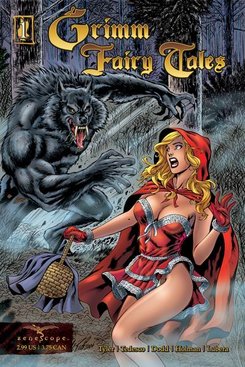
The Little Red Riding Hood fairy tale has often been adapted, and into a wide variety of media. [1]

The Little Red Riding Hood fairy tale has often been adapted, and into a wide variety of media. [1]

Many of the short stories and poems (as well as many older texts) are collected in The Trials and Tribulations of Little Red Riding Hood by Jack Zipes.
{{cite web}}: CS1 maint: bot: original URL status unknown (link){{cite web}}: CS1 maint: numeric names: authors list (link)